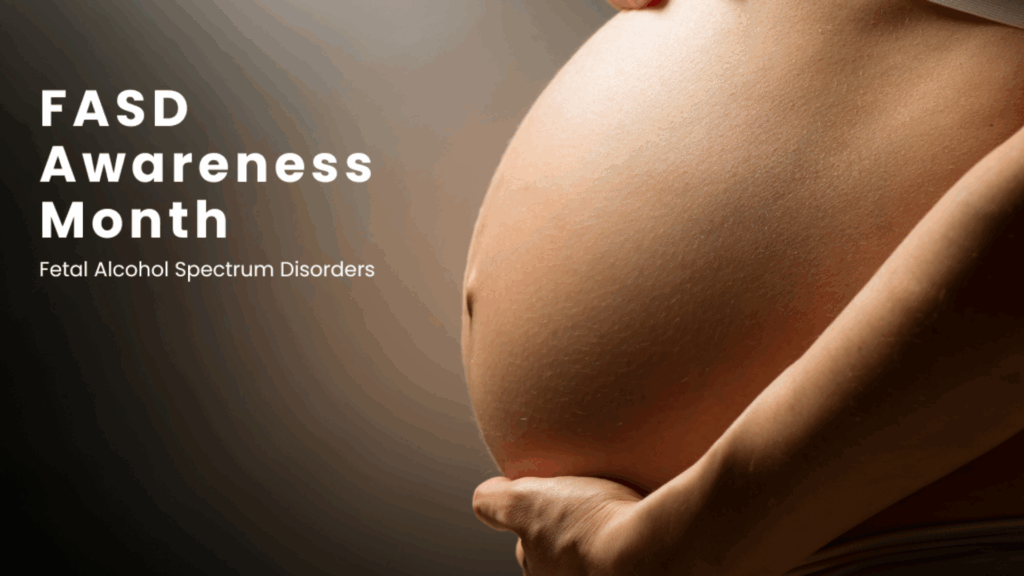FASD month is an expansion of International FASD Awareness Day, observed on September 9th. FASD (Fetal Alcohol Spectrum Disorders) is the umbrella term describing the range of effects that can occure in an individual whose mother drank alcohol during pregnancy. These effects may include physical, mental, behavioral, and or learning disabilities with lifelong implications.
FASD is 100% preventable if a developing fetus is not exposed to alcohol. NIAAA (National Institute on Alcohol Abuse and Alcoholism) states that prevalence studies estimate that approximately 1 to 5 percent of U.S. first-grade children have FASD.
To learn more about FASD:
- NIAAA Fetal Alcohol Spectrum Disorders (FASD): Prevention and Intervention
- CDC: Fetal Alcohol Spectrum Disorders
- Fetal Alcohol Spectrum Disorders (FASD) Toolkit (CDC and American Academy of Pediatrics partnership)
- FASD United (formerly known as NOFAS)
- World Health Organization: Prevention of Harm Caused by Alcohol Exposure in Pregnancy
- The National Center on Substance Abuse and Child Welfare’s Understanding Fetal Alcohol Spectrum Disorders: Child Welfare Practice Tips
FASD United provides a FASD Family Navigator program connecting individuals living with fetal alcohol spectrum disorders (FASD) and their family members and caregivers with expert, confidential support and referrals. The navigator serves members of the FASD community and anyone in need of one-on-one emotional support, referrals to resources and services, information about prenatal alcohol exposure, or with a question about any facet of FASD.
